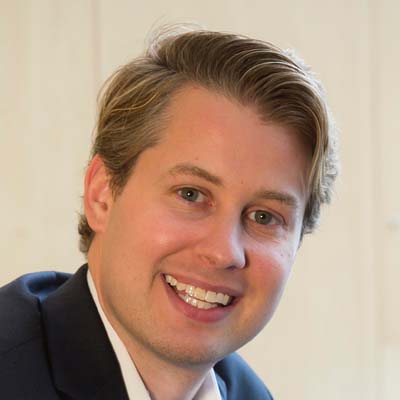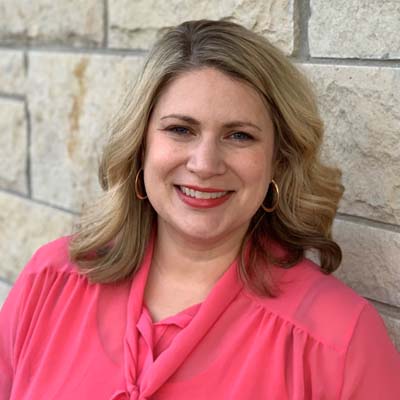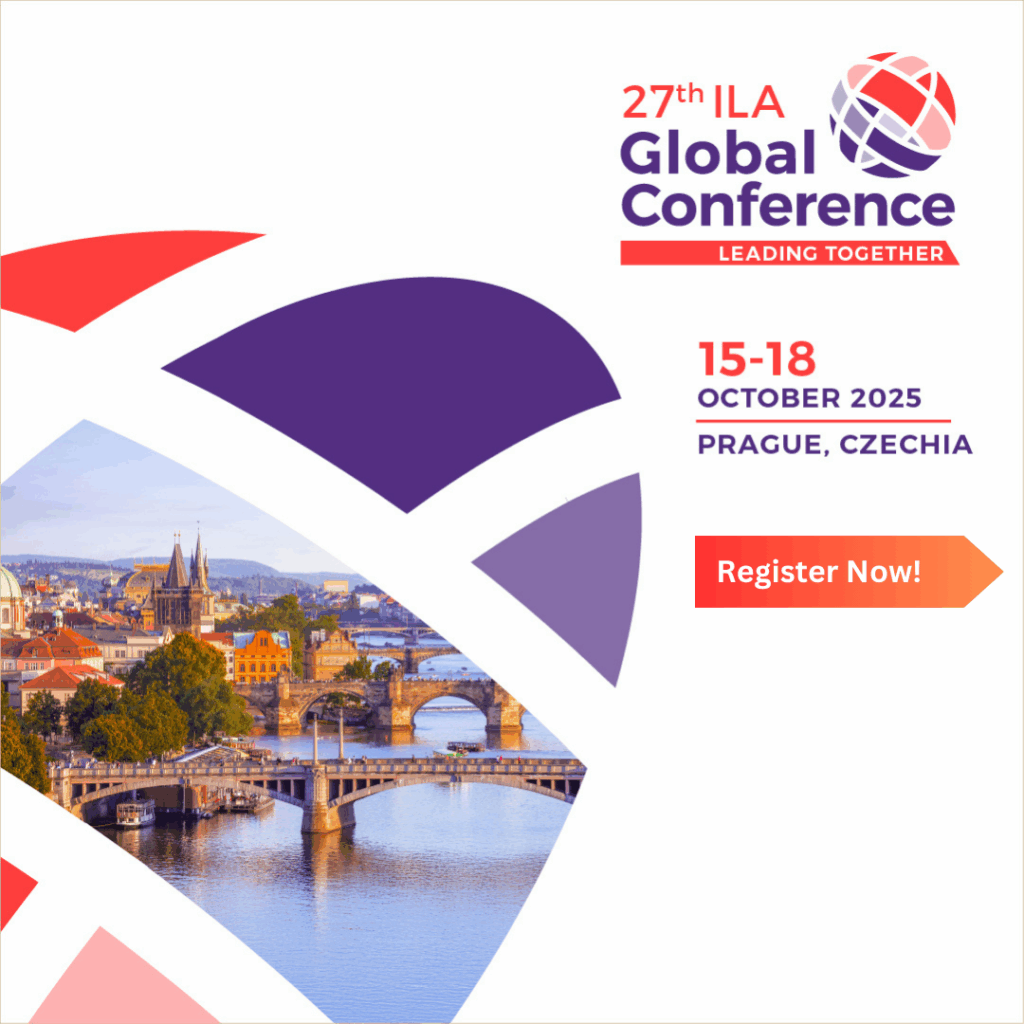
by Nathan Eva, Ph.D. and Kerry Priest, Ph.D.
In this PAUSE for Pedagogy, Nathan Eva and Kerry Priest discuss leadership education as a landscape of practice and share an exercise on peer coaching that they utilize at ILA’s Leadership Education Academy.
- 12 May 2023
Share this article:
On behalf of the entire facilitation team, we invite you to this year’s Leadership Education Academy (LEA) — 31 July to 3 August 2023 — in St. Paul, Minnesota, USA. LEA is not just another conference. It is not really a conference at all. It is an immersive 4-day workshop designed to support both becoming and being a leadership educator. This is a program by educators, for educators. In this article, we want to share a bit more about a lens that informs our approach to professional development of leadership educators, as well as a practice that supports professional development.
Exploring the Landscape
We know that you — the leadership educator reading this PAUSE for Pedagogy — are a member of multiple communities of practice (professional organizations, professional roles and contexts, and disciplines). These communities foster relationships and have traditions of practice that shape how we see ourselves as educators and how we do the work of leadership education (Endersby et al., 2019). At LEA, we offer a view of leadership education as a landscape of practice (Wenger-Traynor et al., 2015), and seek to help educators navigate their personal and professional trajectories within, through, and across the communities in which they are a part.
It is through this lens of a leadership education landscape that we acknowledge there is not one body of knowledge that is the “right” one. We’ll take time to critically reflect on historical perspectives that have shaped the field and critical and contemporary contexts that are shifting the trajectory and redefining the why, what, and how of leadership education.
We invite you to bring a course or program design challenge to the conference. ILA’s General Principles for Leadership Programs serve as a guiding framework for our learning. You’ll work with facilitators and your peers to make design choices.
We also build in a lot of time for reflection on our own contexts, identities, and philosophies as educators. These things are critical to the meaning we make of our work and the decisions we make about our programs and teaching.
LEA is full of opportunities to refresh on content (leadership theories, models, concepts), reflect on what best fits your program, and hear from others about what they teach and why it matters.
You will take away lots of teaching and training ideas — we strive to incorporate a variety of large-group and small-group techniques throughout the experience. We have sessions dedicated to innovative teaching strategies. You can choose your own adventure to explore ideas, plus your participant guide is full of teaching tips and techniques that you can implement right away. Check out the full program schedule at this link: https://ilaglobalnetwork.org/wp-content/uploads/2023/03/2023-LEA-Curriculum-Overview.pdf
Coaching: A Compass on the Journey
At LEA we utilize a peer coaching process that participants have found to be a highlight of the program as it is engaging and useful to their development as well as a strategy to “take home” and apply within classrooms or organizational contexts. Through a structured process (adapted from Greenleaf et al., 2020 and Turner, 2013), a participant will share a “case” and the group will ask questions for the purpose of helping the presenter think differently about the challenge. The beauty of this process is in resisting the urge to offer solutions and building instead our capacity for powerful questions.
Of course, we do have much knowledge and experience in our network of peers! So, another step in the process is sharing ideas, resources, and offers (e.g., experience, connection). At the end of the process, the case presenter reflects on the network of questions and ideas to identify a “next wise action” to make progress on their challenge.
Developing coaching skills like listening carefully, asking powerful questions, and resisting imposing your own solution is valuable for any educator. Coaching conversations can happen in many forms; according to the Center for Creative Leadership (n.d), as people within organizations have more candid coaching conversations, it strengthens team relationships, increases engagement, and improves performance.
Travel Companions
When you leave LEA, you won’t be leaving alone — you’ll leave with a network of colleagues and friends who are on the journey with you. You will have found a circle that is there to support you on your leadership educator journey, long after you finish LEA.
We can’t wait to see you there!
Nathan Eva, Ph.D., LEA Co-Chair; Associate Professor, Department of Management at the Monash Business School, Kulin Nation, Australia
Kerry Priest, Ph.D., LEA Co-Chair; Professor, Staley School of Leadership; Director, Leadership Communication Doctoral Program at Kansas State University, USA
References
Center for Creative Leadership (n.d.). How to hold a coaching conversation. https://www.ccl.org/articles/leading-effectively-article/how-to-have-a-coaching-conversation/
Endersby, L., Jenkins, D. M., & Priest, K. L. (2019). Leadership education: Advancing a community of practice. New Directions for Student Leadership, 2019(164), 141-149. https://doi.org/10.1002/yd.20363
Greenleaf, J., Stanley, T. & Priest, K. L. (2020). Peer consultation. In K. L. Guthrie & D. M. Jenkins (Eds.), Transforming Learning: Instructional and Assessment Strategies for Leadership Education (pp. 30-31). Information Age Publishing.
Turner, E. (2013). Gentle interventions for team coaching: Little interventions that make a big difference. LIM LLC.
Wenger-Trayner, E. Fenton-O-Creevy, M., Hutchinson, S., Kubiak, C., & Wenger-Trayner, B. (2015). Learning in landscapes of practice: Boundaries, identity, and knowledgeability in practice-based learning. Routledge.
About the Authors

Nathan Eva, Ph.D. (he/his) is an Associate Professor in the Department of Management at the Monash Business School, Kulin Nation, Australia. He was a 2021 Fulbright Scholar. Nathan was awarded the 2016 and 2013 Dean’s Award for Teaching Excellence and nominated for Monash University’s 2017 and 2016 Vice-Chancellor’s Award for Teaching Excellence for his local and international leadership development units. Nathan’s research on servant leadership and leadership development has appeared in leading international outlets such as The Leadership Quarterly, Journal of Organizational Behavior, and Human Resource Management. He is a board member of the Network of Leadership Scholars, the Incoming Chair of the Leadership Scholarship division for ILA, a Senior Editor for Management and Organization Review and an editorial board member of The Leadership Quarterly, Journal of Business Ethics, and Group and Organization Management.

Kerry Priest, Ph.D. (she/her) is an associate professor and director of graduate studies in the Mary Lynn and Warren Staley School of Leadership Studies at Kansas State University. She teaches graduate courses in leadership theory, community engaged scholarship, and qualitative research methods. Kerry is also the director of K-State’s interdisciplinary Leadership Communication Doctoral Program.
She is a researcher with the Kansas Leaders Center’s Third Floor Research program. Her interdisciplinary research agenda focuses on advancing leadership learning and development, building civic capacity, and leading change. She is interested in leadership learning and development from critical and complex systems lenses, which includes building the capacity of individuals, groups, and communities to engage in collective, relational, adaptive, and socially just leadership practice.
She is co-editor of the book Navigating Complexity in Leadership: Moving Toward Critical Hope (2022, IAP), and is co-editor of the special issues Being and Becoming a Leadership Educator and Leadership Education through Complex Transitions in the New Directions for Student Leadership series. Kerry received the 2018 Outstanding Scholar Award from the Association of Leadership Educators. She is an associate with the Human Systems Dynamics Institute, a certified Analytic-Network Coach, and a member of the International Leadership Association.
As an Amazon Affiliate ILA earns a small amount from qualifying purchases when you click on the link to the book above. Thank you for your support!

